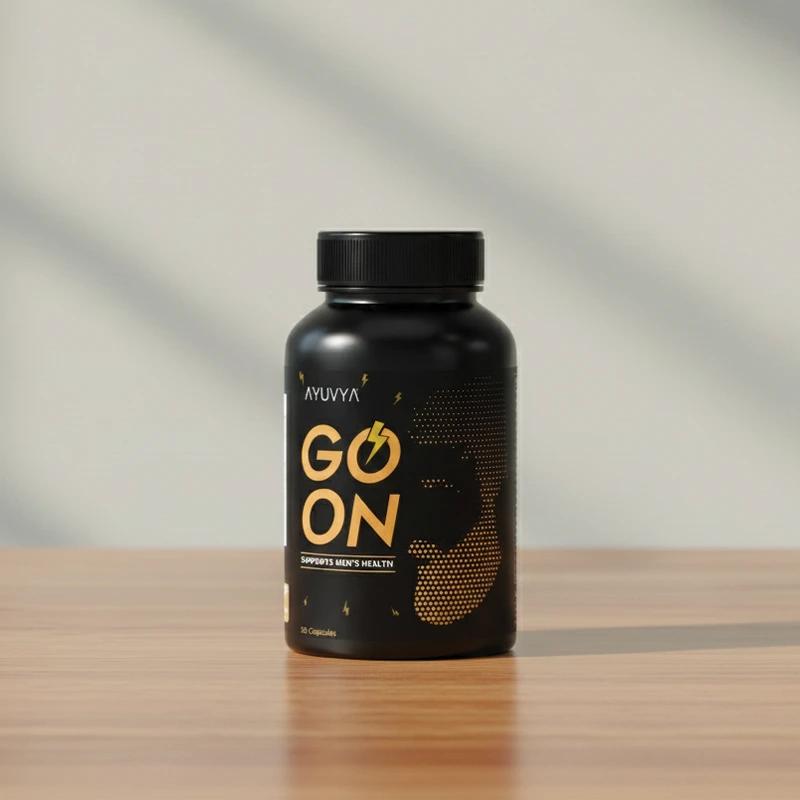Foods That Will Increase Your Testosterone Naturally
May 30, 2024

Testosterone plays an important role in health and well-being, influencing everything from muscle mass and bone density to libido and mood. While there are medical treatments available for boosting testosterone levels, many are turning to natural methods, particularly through diet. In this article, we will discuss different types of foods that can help increase your body’s testosterone levels naturally.
Table Of Contents:
- Testosterone Booster Food for Your Diet
- Foods to Avoid for Maintaining Testosterone Levels
- Through Lifestyle Changes
- What are the Symptoms of Low Testosterone?
- Conclusion
- FAQs
Testosterone Booster Food for Your Diet
1. Leafy Green Vegetables
Foods that increase testosterone include nutrient-dense leafy greens like spinach, kale, and Swiss chard. These vegetables are high in magnesium, a mineral linked to increased testosterone levels. High levels of magnesium intake through leafy green vegetables is positively associated with testosterone levels in men, making these greens a vital part of a testosterone-rich diet.
2. Onions and Garlic
Both onions and garlic are testosterone rich foods due to their high flavonoid content. These kitchen essentials improve the functionality of Leydig cells, which are responsible for the production of testosterone in the testes. Research indicates that both onions and garlic can boost testosterone levels naturally, thanks to their antioxidant properties.
3. Berries and Pomegranates
Including berries such as blueberries and cherries, along with pomegranates in your diet can increase testosterone production. These fruits are loaded with antioxidants that protect critical cells in the testes, boosting hormone production and ensuring overall reproductive health.
4. Ginger
Ginger, widely used in Ayurvedic medicine, is effective in increasing testosterone levels significantly with regular consumption. Its anti-inflammatory properties also help in maintaining overall hormonal balance, positioning ginger as a beneficial testosterone food.
5. Avocado
Avocados are excellent foods that increase testosterone naturally. They are rich in boron and magnesium, minerals essential for sex hormone production. The healthy fats in avocados also support hormonal balance, offering benefits beyond just testosterone enhancement.
6. Fortified Plant Milk
For those following a vegetarian diet, fortified plant milks are an excellent source of vitamin D and calcium. These nutrients are crucial for maintaining proper testosterone levels, making fortified plant milk a valuable addition to a testosterone food vegetarian diet.
7. Nuts and Seeds
Almonds, walnuts, and flaxseeds are ideal foods to build testosterone. They provide omega-3 fatty acids and zinc, boosting testosterone levels naturally. For vegetarians or those adding more plant-based protein to their diets, these nuts and seeds are essential.
Foods to Avoid for Maintaining Testosterone Levels
Maintaining a balanced testosterone level in your body requires considerable dietary choices, particularly avoiding certain foods that can negatively impact hormone balance. Here are some key foods and substances you should avoid:
High Trans Fat Foods: Avoid commercially fried snacks and processed baked goods that are high in trans fats, which have been shown to reduce testosterone production.
Soy Products: Soy contains phytoestrogens, which can act like estrogen in the body and potentially lower testosterone levels when consumed in large quantities.
Alcohol: Excessive alcohol intake can hamper the endocrine system and significantly reduce testosterone production. Research suggests that regular heavy drinking is associated with a decrease in this crucial hormone.
Sugar-Rich Foods: High intake of sugary foods and beverages can lead to insulin resistance, obesity, and a decrease in testosterone levels.
Refined Carbohydrates: Foods such as white bread, pastries, and some cereals can lead to increased insulin levels and reduced testosterone levels.
Increasing Your Testosterone Level through Lifestyle Changes
In addition to dietary changes, adopting certain lifestyle habits can serve as effective testosterone boosters in food naturally. Engaging in regular physical activities such as strength training and high-intensity interval training (HIIT) can significantly boost testosterone levels.
Furthermore, stress reduction techniques like meditation and yoga have been shown to lower cortisol, a stress hormone that negatively affects testosterone. Sleep is another critical factor that can affect testosterone levels. If you are not having enough sleep time, your testosterone levels will likely drop.
What are the Symptoms of Low Testosterone?
Low testosterone, or hypogonadism, can impact both the physical and psychological health of individuals. Recognizing these symptoms early is crucial for effective management and treatment. Here's a closer look at the common indicators of low testosterone levels:
Reduced Muscle Mass and Strength: One of the most noticeable symptoms of low testosterone is a decrease in muscle mass and strength. Testosterone plays a key role in building and maintaining muscle tissue. When levels are low, individuals may find it harder to gain or maintain muscle mass, even with regular exercise.
Increased Body Fat: Low testosterone often leads to an increase in body fat. This can be especially noticeable around the abdomen. Testosterone helps regulate fat distribution and metabolism, and a deficiency can alter body composition unfavourably.
Decreased Libido: Testosterone is heavily involved in sexual drive and performance. A significant drop in libido or sexual desire is a common symptom of low testosterone. This change can also lead to difficulties in achieving or maintaining erections, known as erectile dysfunction, which further impacts sexual health.
Fatigue: Individuals with low testosterone frequently report a pervasive sense of fatigue and a lack of energy, which does not improve with rest. This is different from general tiredness, as it is persistent and affects daily functioning.
Mood Changes: Testosterone influences mood. Low levels can lead to emotional changes such as irritability, depression, and a decreased sense of well-being. Men with low testosterone might find themselves more anxious or less motivated than usual.
Reasons Behind Low Testosterone Levels
Poor Dietary Choices: Excessive consumption of refined carbohydrates which can spike insulin levels and negatively impact hormone balance. Insufficient intake of testosterone booster foods, such as those rich in zinc, vitamin D, and omega-3 fatty acids, essential for hormone production.
Environmental Factors: Exposure to endocrine-disrupting chemicals found in plastics, pesticides, and personal care products can interfere with testosterone production and hormone regulation.
Chronic Stress: High levels of stress lead to increased cortisol production, which can aggravate testosterone, reducing its production and effects in the body.
Sedentary Lifestyle: Lack of physical activity can affect hormonal health, as regular exercise is known to boost testosterone levels.
Age-Related Changes: Natural decline in testosterone production as part of the ageing process, typically noticeable after the age of 30.
Health Conditions: Certain medical conditions like diabetes, obesity, and hormonal disorders can directly impact testosterone levels. Medications such as opioids and glucocorticoids can also lower testosterone as a side effect.
Alcohol Consumption: Regular heavy drinking has been linked to reduced testosterone production and altered hormone levels.
Poor Sleep Patterns: Inadequate sleep can significantly lower testosterone levels, impacting overall hormone balance.
By focusing on a diet rich in foods that increase testosterone and adopting healthy lifestyle practices, individuals can effectively manage and boost their testosterone levels naturally, promoting better health and vitality.
Conclusion
Boosting testosterone naturally involves a combination of diet, lifestyle changes, and potentially Ayurvedic practices. For instance, incorporating Ayurvedic principles, such as using herbal supplements and maintaining a balanced diet, can help you achieve the same.
Frequently Asked Questions
Testosterone levels increase significantly during puberty in males, typically starting between ages 10 to 14, and peak in the late teens or early 20s. Levels tend to decline gradually after the age of 30.
Yes, shilajit is known to increase testosterone levels. It contains fulvic acid and more than 84 minerals, thus offering numerous health benefits including boosting testosterone in men.
Testosterone levels can be checked at home using specific test kits available online. These kits typically involve sending a sample to a lab for analysis.
Yes, ashwagandha has been shown to increase testosterone levels, particularly in men suffering from stress or fertility issues. It increases overall endocrine function, supporting testosterone production.
Boost male testosterone by including foods for high testosterone like beans, nuts, and leafy green vegetables into your diet. Regular strength training and maintaining a healthy weight are also key practices.
Milk can indirectly support testosterone production if it's full of vitamin D. However, make sure it's low-fat or skim milk to avoid excessive intake of harmful fats.
Pomegranate juice is good for boosting testosterone due to its antioxidants. Ginger tea is another effective choice, known to increase testosterone levels and improve male fertility.
Pomegranates are excellent for increasing testosterone as they reduce stress and oxidative stress in the body. Other beneficial fruits include bananas and avocados, which are great testosterone food vegetarian options.
Testosterone rich foods include beans, nuts (especially almonds and walnuts), and seeds like pumpkin and sesame. These foods are excellent sources of zinc and other nutrients that support hormone health.














